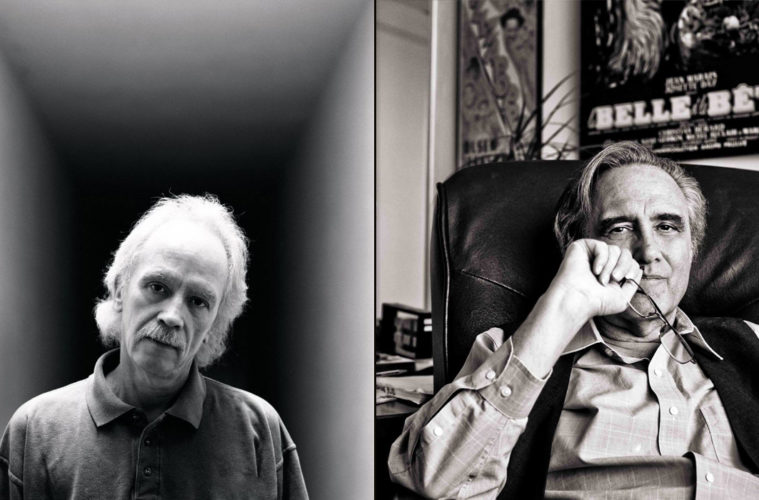In 2005, Showtime released a pivotal TV anthology series called Masters of Horror. The premise was simple. Producer Mick Garris pulled up his extensive rolodex and recruited some of the biggest names in genre filmmaking. He gave each of them a budget and time allotment to do whatever they wanted with no studio interference (with one exception I’ll get into in a later post) as long as the final product came in at an hour long. This resulted in some really good television that I devoured with abandon. I didn’t have Showtime, so I was basically forced to buy each episode on DVD as they were released. The first season was almost 100% great and while the second season wasn’t quite as good as the first, it still had several gems waiting to be found. This Director Spotlight sub-theme will focus on profiling the directors involved with the project, starting with two major stalwarts of the genre, John Carpenter and Joe Dante.

Where do I start with John Carpenter? The man is a legend who has a higher batting average than most genre directors. From stone-cold horror classics like Halloween, The Thing, The Fog and In the Mouth of Madness to cult action sci-fi fun like Big Trouble in Little China, Escape from New York and They Live, Carpenter is a director that has rarely done wrong. He even composes many of his own scores. With its undercurrent of pulsing menace, Carpenter’s music influenced the entire sound of horror throughout the 1980s and is even having a resurgence in popularity today. As for his influence from a filmmaking standpoint? Halloween basically kick-started an entire major, highly successful sub-genre, the Slasher, and The Thing is often placed among the absolute best horror films ever made with its cold and calculating sense of menace and paranoia paired with Rob Bottin’s groundbreaking practical effects. I can’t think of very many other directors, horror or otherwise, to have this much of an impact on filmmaking.

Memoirs of an Invisible Man (1992)
Memoirs of an Invisible Man was not well-received on its original release but really isn’t as bad as its reputation may suggest. Essentially operating as a sci-fi noir with elements of comedy (although probably not as much as one would expect which may be what led to the general disappointment with it when it originally launched), Chevy Chase plays a smug womanizer involved in a freak science lab accident that renders him completely invisible and pursued by an unhinged government agent played by Sam Neill. While on the run he sparks a romance with Daryl Hannah while trying to figure out how he can change back to normal. The tone is odd. The movie doesn’t seem comfortable with whether it wants to be a neo-noir, a sci-fi special effects vehicle, a romantic comedy or an on-the-run thriller, so it comes out as a weird hodge podge of all of the above. Chase is fine in the role and I think audiences’ issues with him are more due to expectations rather than actual results, a problem that would plague Chase with other pictures he would make. I actually liked in particular that the movie gets into the details of the physiology of being invisible, what doing things like eating and drinking look like and how he has trouble sleeping since he can see through his eyelids for instance, that many other invisible man movies conveniently leave out. While not really a success, I’d still consider it an interesting mess rather than outright failure.

Elvis (1979)
Elvis marks the first collaboration between Carpenter and Kurt Russell, igniting one cinema’s great pairings of actor and director. Originally broadcast as a TV mini-series, the nearly 3-hour film hits all the usual beats one expects from a music biopic, but what really elevates it is Kurt Russell’s fantastic portrayal of Elvis. The man was born to play this part. Not only does he get the look down, he embodies the swagger and the confidence of Presley right from the get-go as well as the inherent charm he projects. If Elvis has any faults, it’s with the length. It probably could have been edited down to around two hours and still been fine, but it’s still perfectly watchable and engaging as-is.
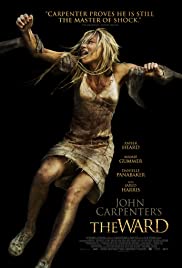
The Ward (2010)
The Ward is, so far, Carpenter’s last feature film as director. I really hope he makes another because it would be a shame to go out on this lukewarm and forgettable ghost-in-an-asylum picture. The directing here feels almost work-for-hire with these bizarre jump-scare, jump cuts that seem very out of character for Carpenter. The script is also pretty weak with ham-fisted dialogue and lame story beats that I’m guessing are intended to be twists but are generally very predictable. Also missing is Carpenter’s classic score. He apparently felt he was too old to do it which is ironic given that playing music is all he does now. I really hope Carpenter has another one in him but even if not, he’s left a body of work that’s left an indelible image on cinema.

Joe Dante is a bit of a kid at heart. Filling his films with references and homages to classic cult and monster movies of his childhood has been a staple of his since the beginning. He also tends to lace even the most serious of his films with elements of humor (except The Screwfly Solution which was almost serious to a fault). He first came to the attention of genre fans with the double whammy of Piranha and The Howling. With the Spielberg-produced Gremlins, he cemented his reputation as a successful and imaginative filmmaker and has continued to produce many fun films since then like the cartoonishly wacky follow-up Gremlins 2: The New Batch, the Tom Hanks ‘paranoia in suburbia’ flick The ‘Burbs, Matinee (a tribute to showmen like William Castle that Dante obviously admired) and many others. In more recent years he has more closely hewn to TV work like many once prominent directors who may have had trouble getting their personal visions funded in the Hollywood machine. Nevertheless, he continues to hold closely that element of childlike delight that punctuates the best of his films.
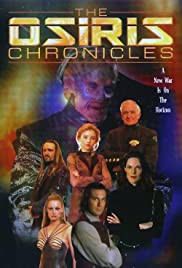
Osiris Chronicles (1998)
Osiris Chronicles, also referred to as The Warlord: Battle for the Galaxy, was pitched as a TV pilot for an ongoing series that was never picked up which leaves the ending pretty unsatisfying. As far as the themes and story, it bears a similarity to the Sci-fi Channel series Andromeda that would come out a few years later involving a group of folks who band together amidst turmoil to rescue a kidnapped girl and right wrongs in the galaxy. The plot feels overstuffed with minor details (it’s obvious the writer intended to flesh much of this out later) and the script feels like it’s going for a Star Trek vibe with its political dealings and overabundance of dialogue. It’s definitely not one I would recommend for casual fans of Dante expecting more like Gremlins or The Howling but for fans of other TV sci-fi like the aforementioned Andromeda or series like Lexx, you may dig it.
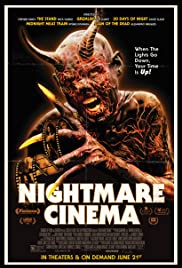
Nightmare Cinema (2018)
Nightmare Cinema is a five-part anthology with, in addition to Dante, segments by Ryuhei Kitamura (Midnight Meat Train, Versus), Alejandro Brugues (Juan of the Dead), Mick Garris (The Stand, Sleepwalkers) and David Slade (Hard Candy, Twilight: Eclipse) that uses Mickey Rourke as the cryptkeeper-esque figure of the wraparound segment as a haunted projectionist. Dante’s segment involving some plastic surgery body horror goes more for the gross out and is fine but not stellar. Brugues’ segment is fairly clever and starts where most slashers end mid-final girl chase. Mick Garris’ segment about a boy involved in a shooting teetered between life and death is a little cheesy but not actively bad. Kitamura’s ridiculously violent segment at a boarding school run by a priest and nuns is all about the blood and has a pretty cool soundtrack. Slade’s segment is the most atypical, shot in black & white and dealing with the deterioration of a woman’s mental state manifests as layer upon layer of dirt and grime on everything she sees that is similar aesthetically to his “Metal Head” episode of Black Mirror. Like most anthologies, this one has its ups and downs but overall is worth watching for horror fans looking for a nice variety.
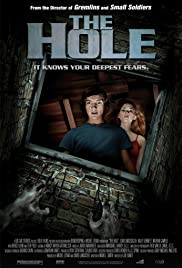
The Hole (2009)
The Hole feels like an old school Dante film, a legit horror film targeted to children with a neat premise involving kids who discover a bottomless pit in their basement and the things that crawl out of it. Some of the writing is a little weak in places but the film has such a well-balanced sense of fun and horror that it’s forgivable, and the set design at the climax was a delight to watch. Plus it was nice to see Dante veterans like Bruce Dern and Dick Miller one more time.

